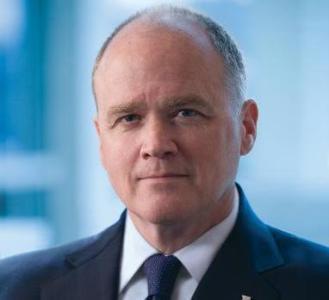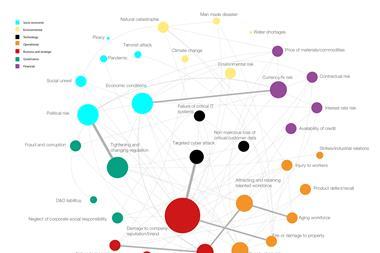XL Group chief executive talks to StrategicRISK’s sister title GR about why there is no head of innovation at his company

There is no head of innovation at XL. We believe that innovation is not an occupation, not a discipline in its own right. Contemplating new ideas, advancements, and improvements should be what we all strive for, in all areas of our work. It’s not the job of one person. But, innovation is essential. The longevity of any (re)insurer – any business in general for that matter – requires continual reinvention. And it is easy to think of examples of former household names that failed to innovate or didn’t see how the macro trends were unfolding – to their cost.
Innovation in (re)insurance is happening all around us, at the moment mostly concentrated in the form of capital being applied to products. Call it convergence, call it alternative or call it third party capital, the idea is the same: sources of capital, traditionally found in financial markets are being used to seize opportunities to innovate what has been the domain of the traditional (re)insurer.
Yes, it’s a new source of revenue for funds searching for yield in this continuing low interest rate environment. Yes, it is causing enormous pressures on reinsurance pricing. And yes, these capital sources can be seen as a threat to the way business has been done in the past, but they are likely here to stay for some time.
To our clients, who are increasingly agnostic to the source of the capital being applied to their risk, it’s a means to a better solution. And that’s where (re)insurers need to focus while continually questioning and asking: how do we innovate alongside, in anticipation of, and in service to our clients evolving risk needs?
Famously, Steve Jobs’ belief in the iPhone as a success was in the delivery of a product that the public didn’t know it needed or wanted. Addressing our clients’ risks, before they themselves can articulate the issue, is the goal.
The bottom line is: if we are not innovating we are not working. And our sector is in danger of continued disruption.
Each (re)insurer’s culture is unique and will harness this mantra in different ways. But, there are a few principles that cut across our sector.
First, we cannot expect to make judgments on today’s risks based on long data sets. That’s counter to our history. But, the pace of change means the industry can’t afford to collect 10 years of data before providing a solution. Whole industries will come and go in that time.
Second, don’t leave your best people on the most profitable business. Get them on the challenging business, stretch them and stretch the business to go beyond. We are all driven by near-term results objectives and reliable profit centres is a source of comfort. But your best people should push in new and unexpected directions.
Third, do accept and expect failure – there is a cost to innovating and it’s a cost we should be willing to ring fence and bear. The goal should be the right bets, placed in the right amount, over the right time. And the notion that the right attempts, even if unsuccessful, can be celebrated alongside standout success is an incredible catalyst to a stronger innovation environment.
Fourth, we can be made stronger by looking for specialist, intellectual horsepower outside of our industry and creating partnerships to bring that expertise inside. A top IT programmer for instance, will have his/her sights set on working for a number one tech firm, and so they should. But by seeking consultation with such individuals and their respective employers, we can harness first class insights and knowledge.
The longevity and reinvention ability of the (re)insurance sector has been demonstrated throughout our history. And the current environment, spurred by technological change and the blurring of the traditional business structures in which we have long found comfort, should be embraced for opportunity.
Our societal role has long been in solidifying what comes next. In asking the same question of ourselves, we can maintain this position for the long term and into the future.





















No comments yet